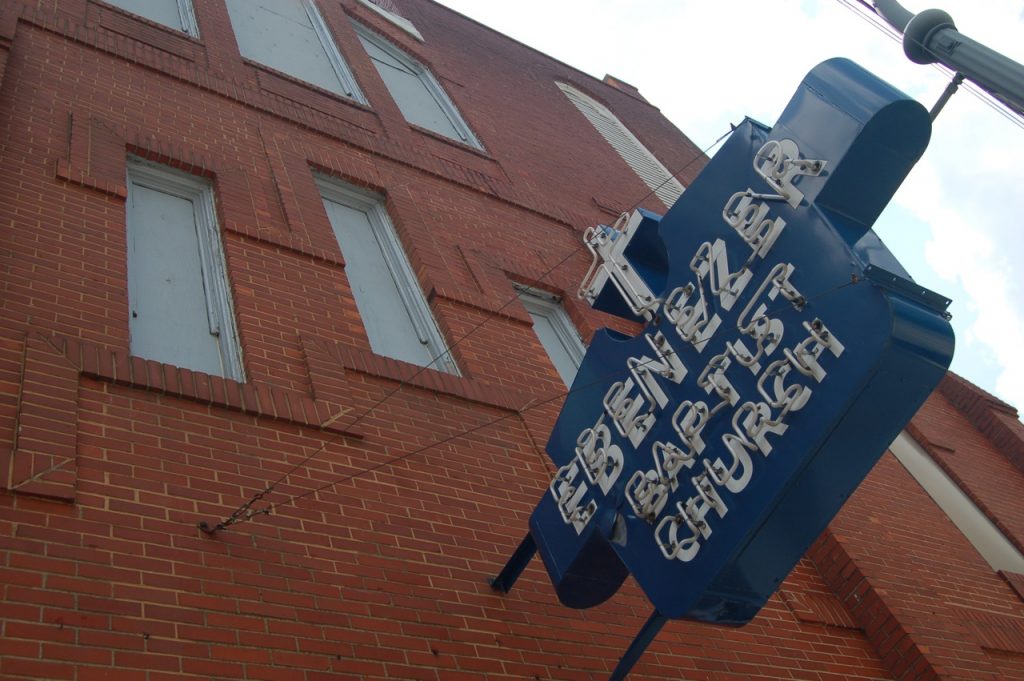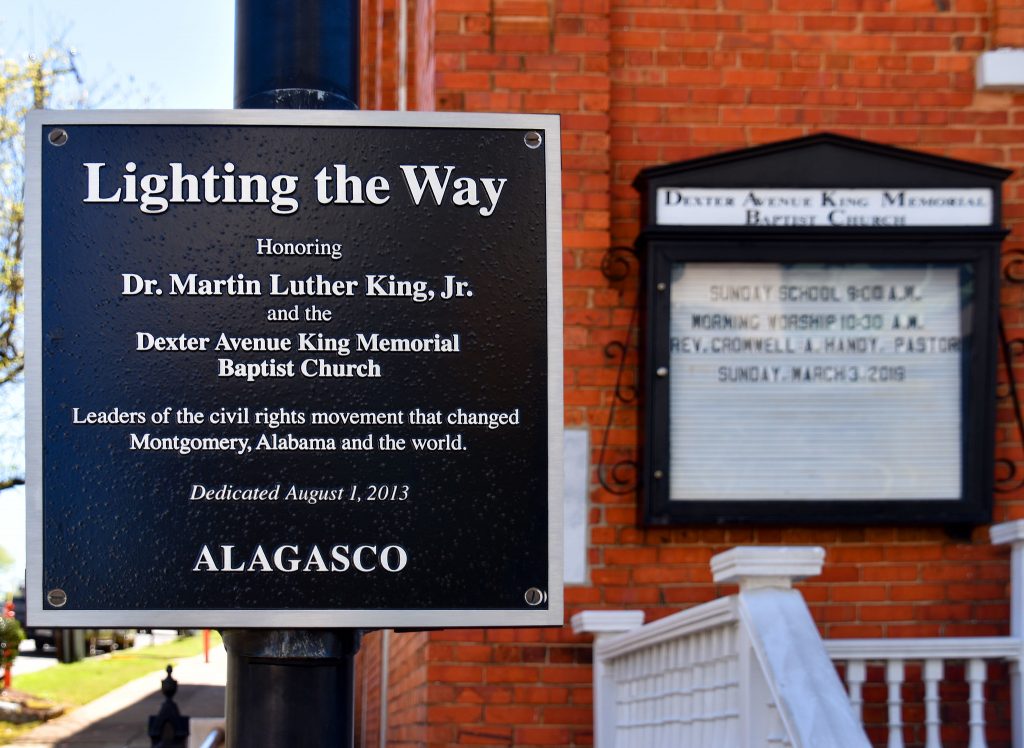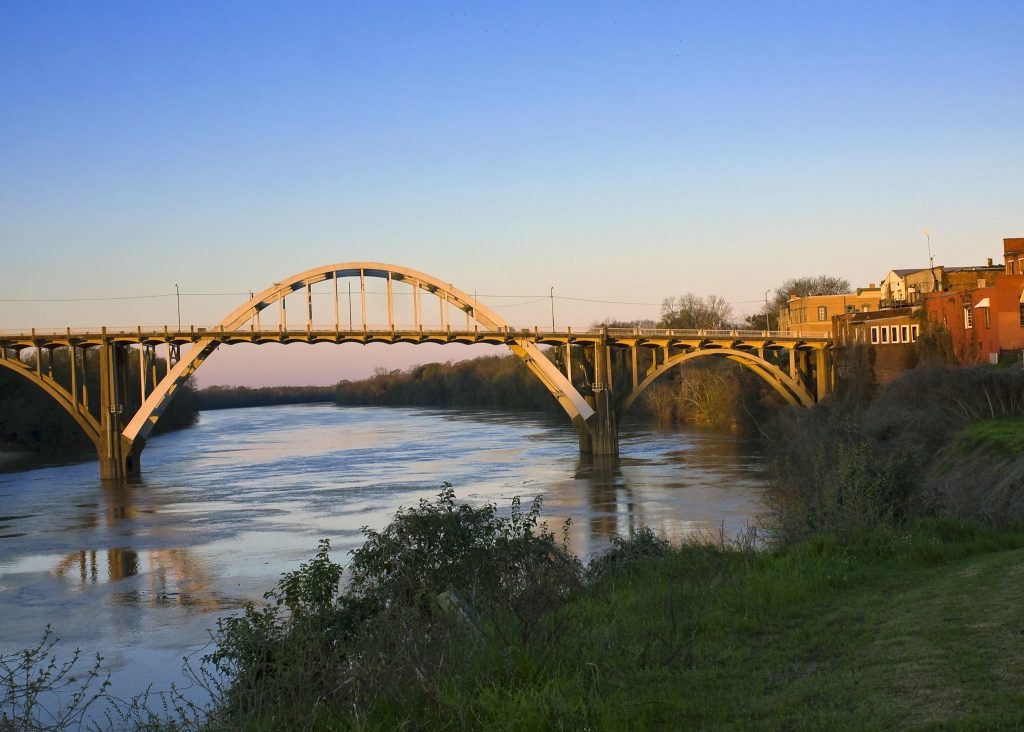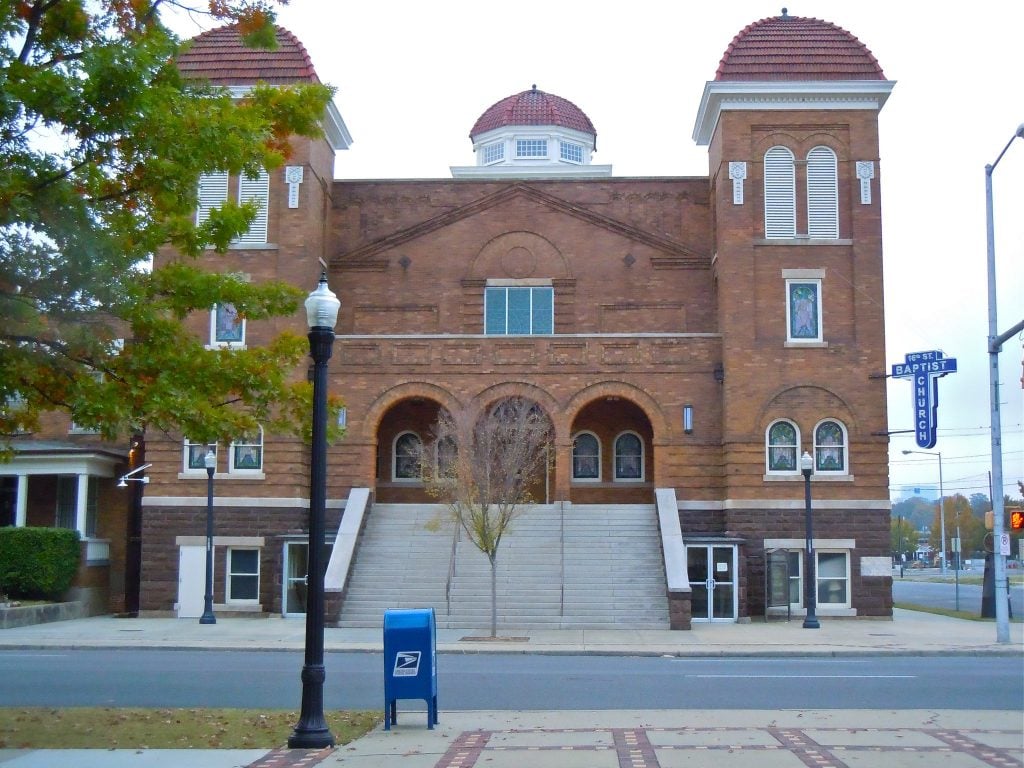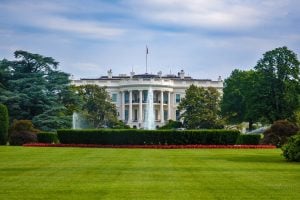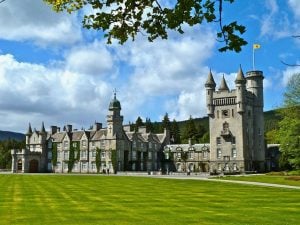“We must use time creatively, in the knowledge that the time is always ripe to do right.”
Those words were written by Dr. Martin Luther King Jr. in a 1964 letter from a Birmingham jail. They speak to the fleeting nature of time, and the importance of being purposeful with the hours and minutes we have.
Just around the corner, with that blistering January breeze biting at so many U.S. cities, many people will be granted a day off of work for Martin Luther King Jr. Day. And while, sure, an extra day off is something to celebrate in and of itself, why not make better use of that time? Especially considering this particular holiday commemorates the birthday of America’s most prominent civil rights activist.
With that mission in mind, we’ve used our own Wanderu data to develop a city-to-city itinerary that hits major MLK–themed destinations, from Dr. King’s monument in D.C. to his birth home in Atlanta to the streets of Birmingham where he organized nonviolent protests. Even better, a road trip of this magnitude doesn’t need to empty your bank account — the entire trail can be traveled for less than $300.
The map below outlines the complete route — from Washington, D.C. through the South — ultimately ending in Memphis. Following the map, we’ve provided a table with the average prices for each route so that you can budget accordingly. So pack for a road trip, grab some snacks, and get started.
Book your trips:
| Washington, DC to Raleigh, NC | $60.33 | |
|---|---|---|
| Raleigh, NC to Atlanta, GA | $50.16 | |
| Atlanta, GA to Montgomery, AL | $20.00 | |
| Montgomery, AL to Selma, AL (local transit) | $20.00 | |
| Selma, AL to Montgomery, AL (local transit) | $20.00 | |
| Montgomery, AL to Birmingham, AL | $29.00 | |
| Birmingham, AL to Jackson, MS | $26.00 | |
| Jackson, MS to Memphis, TN | $34.00 | |
| TOTAL TRAVEL COST: | $259.49 | |
- Bus & train prices are based on the average cost of a one-way ticket for the respective route available on Wanderu over a 30-day period.
- Local transit price is based on one-way fares operated by Western Alabama Public Transportation. Tickets can be purchased in-person at the Montgomery Intermodal Center departure station at 495 Molton St., Montgomery, AL 361024.
By traveling to so many of the pivotal locations in MLK Jr.’s life, we hope you gain a deeper appreciation for the legacy of this historical icon, and are always inspired to do right with the time you have. Find a brief overview of each stop below.
1. Washington, D.C.
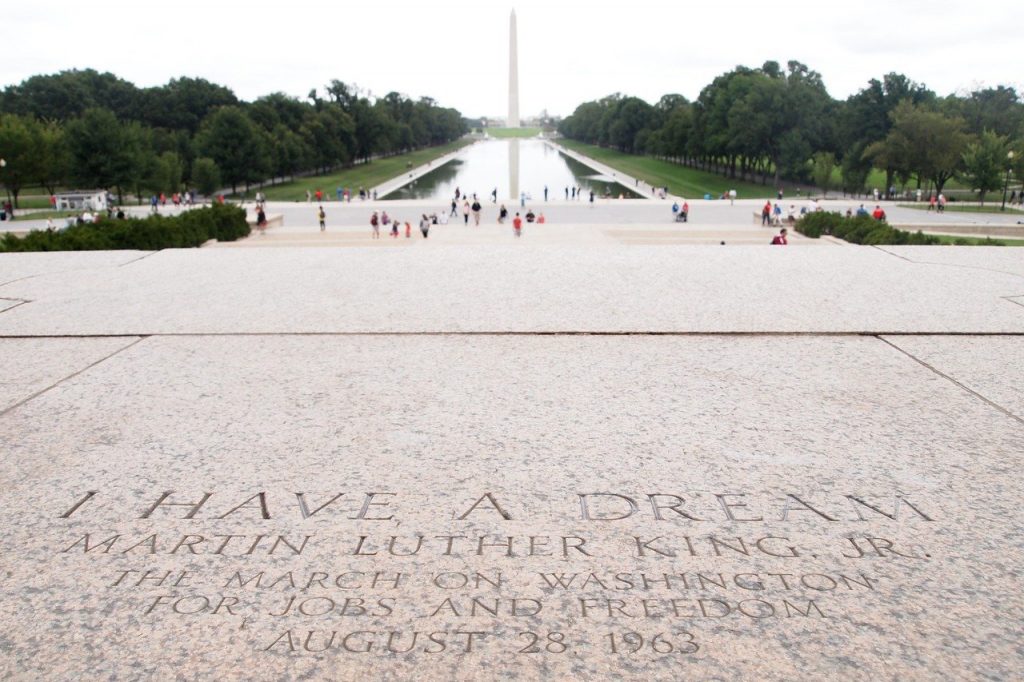
The tour starts in the nation’s capital, a city synonymous with Martin Luther King Jr. ever since he gave his famous “I Have a Dream” speech on the steps of the Lincoln Memorial. Delivered during the 1963 March on Washington for Jobs and Freedom, King’s powerful words went out to more than 250,000 supporters gathered along the National Mall.
A half-mile walk from the Lincoln Memorial is the Martin Luther King Jr. Memorial, situated along the Tidal Basin. The monument depicts a 30-foot tall carving of King emerging from the “Stone of Hope” he mentioned in his famous address, making for a truly awe-inspiring spectacle.
And don’t skip a trip to the National Museum of African American History and Culture before you leave D.C. (One of the top sites in our guide to free attractions throughout the Washington, D.C. area.) Not only is it unique among the capital’s architectural landscape, it also houses a range of amazing exhibits and collections commemorating African American life and culture.
2. Raleigh, NC
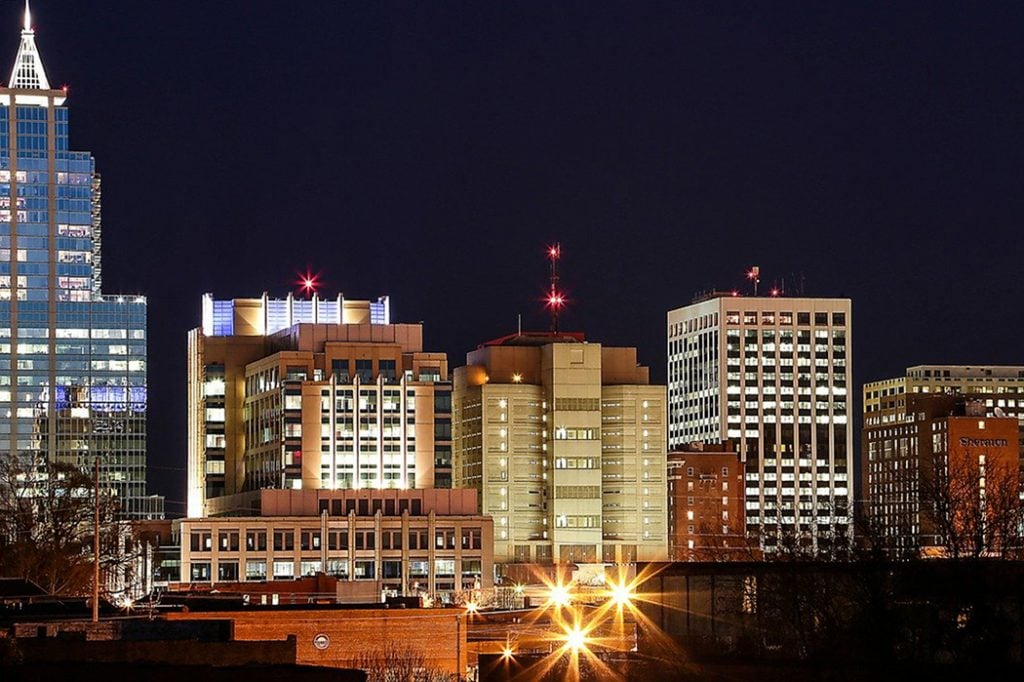
The second stop on your journey through the life of Reverend King is the North Carolina capital.
You may not be familiar with King’s ties to Raleigh, but the famous pastor made two prominent visits in the 1960s. One month after the Greensboro sit-ins, King went to Shaw University in April 1960 to show support to the Students Nonviolent Coordinating Committee. His second visit came in 1966 in the midst of the civil rights movement, where he spoke to a crowd of 5,000 at N.C. State University’s Reynolds Coliseum.
Raleigh is also home to the Martin Luther King Jr. Memorial Gardens. The Gardens were the first public park in the United States dedicated to MLK Jr. and the civil rights movement as a whole. Within, you can find a 6’2” life-size statue of King and a 12-ton granite water monument dedicated to the Raleigh area’s own civil rights leaders.
3. Atlanta, GA
The birthplace of Martin Luther King Jr., this Georgia metropolis is rich with sites celebrating his life and legacy.
An obvious first stop is the The Martin Luther King Jr. National Historic Park, which includes landmarks like the historic Ebenezer Baptist Church (where King was ordained a minister), the BEHOLD Monument and Dr. King’s birth home.
The house is open to visitors who secure tickets (all of which are free), and visitors will be treated to a 30-minute guided tour. The tickets sell out fast, so we recommend booking in advance.
The park is also home to The King Center for Nonviolent Social Change, which was established in 1968 by Coretta Scott King. The King Center strives to continue Dr. King’s mission, seeking not to be a “dead monument, but a living memorial filled with all the vitality that was his, a center of human endeavor, committed to the causes for which he lived and died.”
In addition to its role as a nonprofit advocacy institution, The King Center campus houses MLK’s crypt, along with Freedom Hall — the Center’s primary museum, dedicated to celebrating Dr. and Mrs. King as well as Mahatma Gandhi.
4. Montgomery, AL
At this point you finally arrive in Alabama, where King kicked off his career as an organizer.
We start, as Dr. King did, in the state capital of Montgomery. Here he helped organize and carry out a 385-day boycott of Montgomery’s public bus service, a campaign which became a national story and catapulted Dr. King into country-wide prominence.
Among the most essential landmarks: Dexter Avenue King Memorial Baptist Church. From 1954 to 1960, the pastor at Dexter Avenue was none other than a young Martin Luther King Jr. himself. King’s basement office at the church actually served as the organizing base for the Montgomery Bus Boycott, and the church itself is decorated with a beautiful mural commemorating the civil rights movement as a whole.
Additionally, you can visit the Civil Rights Memorial Center (which is located across the street from the Southern Poverty Law Center). Designed by Maya Lin, who also designed the Vietnam Veterans Memorial in D.C., the Civil Rights Memorial is comprised of a black granite table and a curved wall behind it. The names of civil rights martyrs and a chronology of important civil rights events are inscribed on the table in a circular pattern, appearing like the hands of a clock. The wall behind it features the famous quote from Dr. King: “Until justice rolls down like waters and righteousness like a mighty stream.”
Next stop:
|
Montgomery, AL to Selma, AL (local transit, buy @ station) |
$20.00 |
- Local transit price is based on one-way fares operated by Western Alabama Public Transportation. Tickets can be purchased in-person at the Montgomery Intermodal Center departure station at 495 Molton St., Montgomery, AL 361024.
5. Selma, AL
In 1965, three separate protest marches were held on the stretch of highway between Selma and Montgomery — nonviolent African American demonstrators marching for the right to vote, coordinated by Martin Luther King and others. (Their activism would lead to the passing of the Voting Rights Act later that year.)
During the final march along the Jefferson Davis Highway, demonstrators were protected by members of the Alabama National Guard in response to violence against them at the previous protests. That particular path along U.S. Route 80 is now known as the Selma to Montgomery Voting Rights Trail, and is a designated U.S. National Historic Trail that you’ll be following in reverse.
In Selma itself, stop in at the Brown Chapel AME Church, which served as the starting point for a number of marches throughout the 1960s. The chapel also hosted Southern Christian Leadership Conference meetings, where strategy for passing the Voting Rights Act was discussed.
The spot most synonymous with Selma and its civil rights history is probably the Edmund Pettus Bridge. Only 250-feet long, the bridge isn’t physically imposing, but the events it played host to give it a special weight. The bridge was the site of “Bloody Sunday,” a conflict that saw Alabama police attack, beat and tear gas Civil Rights demonstrators who were attempting a march to the state capital. Images of the event were broadcast to a national audience, and ultimately spurred a great deal of support for the civil rights movement.
Next stop:
|
Selma, AL to Montgomery, AL (local transit, buy @ station) |
$20.00 | |
| Montgomery, AL to Birmingham, AL | $46.65 |
- Local transit price is based on one-way fares operated by Western Alabama Public Transportation. Tickets can be purchased in-person at the Selma Greyhound Station at 434 Broad St., Selma, AL 36701.
6. Birmingham, AL
Birmingham may be the city that Martin Luther King Jr. is most directly associated with, thanks to his incredibly profound “Letter From a Birmingham Jail,” quoted at the beginning of this article. The famous letter was written in April 1963 after Dr. King was arrested for demonstrating. You can find the jail door from where King wrote his letter in the Birmingham Civil Rights Institute.
Opened in 1992, the BCRI is one of the most immersive and expansive civil rights museums in the world. According to their mission statement, BCRI seeks to “enlighten each generation about civil and human rights by exploring our common past and working together in the present to build a better future.” The museum includes interactive exhibits that inform on the events of the past with real artifacts.
Throughout the 1960s, Dr. King was a frequent speaker at the 16th Street Baptist Church where tragically, in 1963, four young girls were killed in a bombing. Following the bombing, the African American community rallied around the girls’ memory, raising more than $300,000 in donations to rebuild. The church is still in operation today, and has been added to the National Register of Historic Places as well as the UNESCO Tentative List of World Heritage Sites.
Then there’s Historic Bethel Baptist Church, which served as the base for the Alabama Christian Movement for Human Rights (ACMHR) — an organization led by one of MLK’s peers, civil rights leader Fred Shuttlesworth. Shuttlesworth served as pastor from 1953 to 1961, and during his tenure the church was bombed twice, both in 1956 and 1958.
Even in the face of bombings, however, the Bethel Baptist Church and the ACMHR persevered, demonstrating nonviolently against segregation in the South and helping to bring about changes like the Civil Rights and Voting Rights acts. Today the Bethel Baptist Church is also a UNESCO Tentative World Heritage Site.
7. Jackson, MS
The capital of Mississippi, Jackson was the endpoint of the 1966 March Against Fear, a 220-mile trek from Memphis led by organizer James Meredith. When Meredith was shot on Day 2 of the march, civil rights leaders like MLK Jr. united in a vow to complete the march, despite constant threats of violence along the way. By the time the group arrived in Jackson, it was the largest civil rights march in Mississippi state history.
The March Against Fear inspired a number of civil rights landmarks in the Jackson area. Most popular among them is the Mississippi Civil Rights Museum, home to the “This Little Light of Mine” exhibit, in which a sculpture glows brighter and music grows progressively louder as more visitors enter the hall.
And while you’re in town, don’t miss the Smith Robertson Museum and Cultural Center, which examines the African American experience in America beyond just the civil rights movement, with exhibits on slavery, folk art and more.
An intensely thought provoking, educational and somber experience awaits in the Medgar Evers Home Museum. A memorial to one of the most well known martyrs of the civil rights movement, this landmark has been well preserved in the more than 50 years since Medgar Evers was assassinated in his own driveway. Visitors must call Tougaloo College to schedule a tour.
8. Memphis, TN
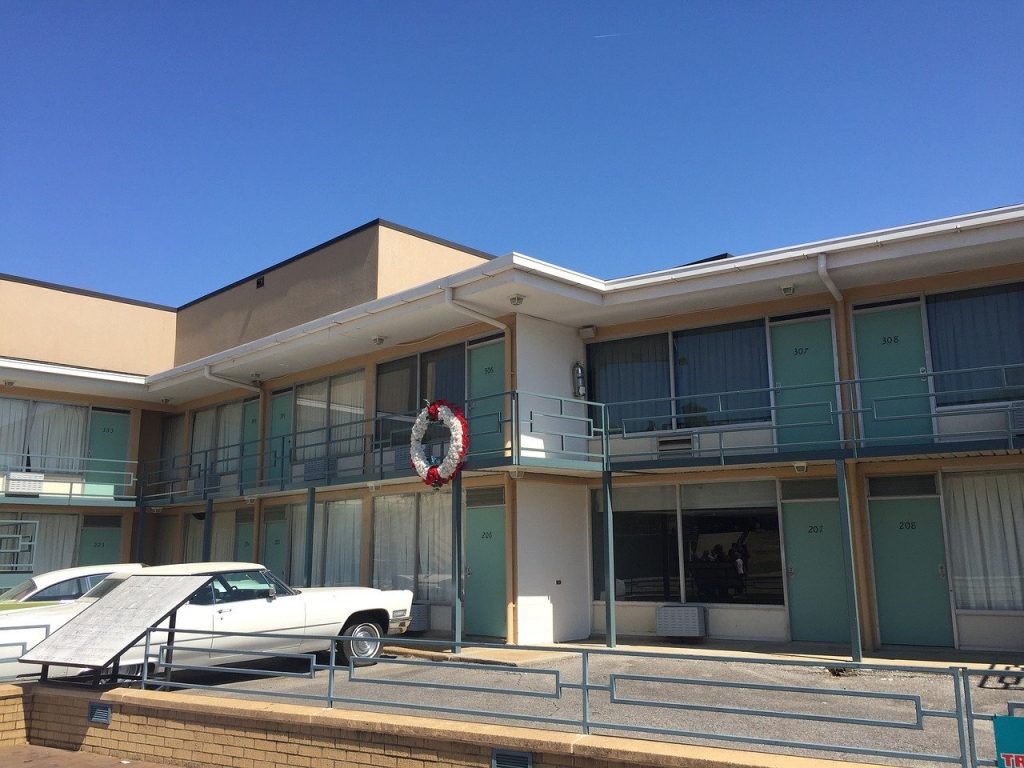
Your final stop is also perhaps the most powerful: The Lorraine Motel, where Martin Luther King Jr. was assassinated in 1968.
While his death is heartbreaking to this day, the people of Memphis made sure it would not be forgotten by founding the National Civil Rights Museum at the Lorraine Motel. The Lorraine no longer functions as a motel, but it does serve as the center for the museum compound dedicated to the memory of the civil rights movement.
Among the exhibits: Room 306, where Dr. King was staying at the time of his death. As you’ll be able to see through a pane of glass, the room remains effectively untouched from its state on April 4, 1968, including King’s unmade bed and personal items on display throughout the room.
City-to-City With Wanderu
There are so many ways you can celebrate MLK Day this January, from attending local events to visiting black history museums. But if you’re looking to give the long weekend the attention and gravity it deserves, consider this trail based on the significant moments in Dr. King’s life.
The full trip costs about $305, but because these are just average prices, the truth is you can make it happen for even cheaper. Compare buses, trains and flights in the same search results to find the best deals on travel — just go to Wanderu.com or download the free Wanderu app. Or if you only have time for a single segment of the trip, that’s fine too — DC to Atlanta or Birmingham to Memphis both make for fine weekend excursions.
So you like the idea of historical tours? After your Martin Luther King pilgrimage, take a look at our Alexander Hamilton itinerary, which is sure to make you book bus tickets like you’re running out of time.
You are welcome to use the information on this page, crediting Wanderu. If you do so, please link back to this page, so that travelers around the globe can check out all the available trips and find out how we came up with the itinerary.



